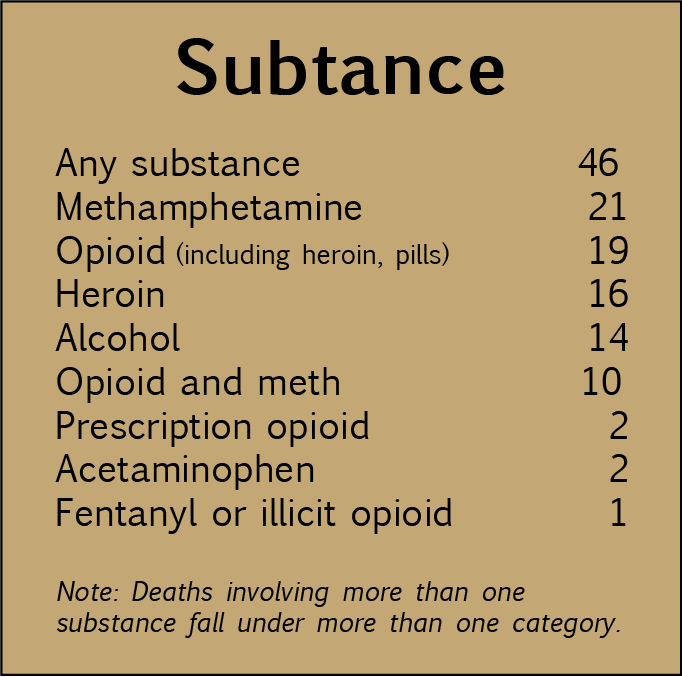Today we release the findings of the 2017 Domicile Unknown report, an ongoing project of the Multnomah County Health Department and Street Roots, sponsored by Multnomah County Chair Deborah Kafoury. In 2017, 79 people were counted, surely an undercount, as the hospital deaths included in the count represent only a portion of hospital deaths among people experiencing homelessness.
We do this report to honor the dead, and we do this to fight for the living.
There are many people for whom I utter a grateful prayer that they are alive. The man who manages his addiction with methadone and a chihuahua for live-saving comfort. Another man, chronically ill, who finally lives indoors in a single-room occupancy with his hotplate and clean clothes in his closet. The woman who describes her carpet as plush as a mattress after nearly 20 years on the streets. The elders who look out for each other in their building – groceries, medicine, friendship.
Housing is health, and so are services for mental health and addictions.
Because it really is touch and go. In the past few weeks, three people wandered into our office with black eyes from being beaten up in their sleep, and one man showed me how, on the back of his head, staples stretched his flesh back together from where it was split apart when he was also beaten on the streets. One man lifted his shoe, pointing to where the rubber sole was dangling, his sock exposed. This happened just as the rains started, he said. There are people whose addictions roar in their ears, drowning out much else, including bits of the pain, or the cold, or the fear. People wander, guarding possessions, never fully sleeping, exhausted. At Street Roots, we fight for their lives.
One man told me about his campsite. He props a “Yes for Affordable Housing Measure 102 & Measure 26-199” lawn sign against his tent because, as he tells me, if there were housing he could afford, he would live there. And his tent is visible to a busy road. But he feels fortunate, more fortunate than some of the people who camp nearby. One woman who has been on the streets most of her life suffers from what looks to him like schizophrenia. He worries about her. And then there is that man who is 77: “Shit, I’m afraid he is going to die out there.”
Too many people do die on the streets. Street Roots has partnered with Multnomah County and the medical examiner on this Domicile Unknown report since 2011, cataloging deaths on the street. In the seven years we have been tracking these deaths on the streets of Multnomah County, at least 438 people have died.
People on our streets die decades before their time. Men died at an average age of 48.
Female, at 41 – decades before their time.
The freezing weather in January 2017 proved fatal for five people sleeping outside who died of hypothermia. The repeated traumas of homelessness exacerbate health vulnerabilities. People are exposed to violence and die that way. They lack safe conditions for a range of health struggles, including mental illness and addiction, resulting in deaths by suicide, methamphetamine, alcohol and opiates.
So far, 2018 is on track to replicate the recent years. At least 49 people who were experiencing homelessness died in Multnomah County between Jan. 1 and Oct. 8, 2018, according to an interim review of the medical examiner.
Multnomah County has extended its work addressing homelessness, forming with the city of Portland the Joint Office of Homeless Services in 2016, helping move people from homelessness to housing, and working to create supportive housing, deeply affordable housing coupled with mental health, addiction and other services. We cannot let up on the local level, and all of this work must be bolstered by strong state and federal support.
Many of these deaths are preventable should people have housing, as well as additional support for their addictions and illnesses.
Look – if we get people indoors, we save lives. If we get people supportive services, we save more. The numbers are grim, but my hope is that we don’t turn away from each other’s humanity. It’s my hope that we turn toward each other with love.
Street Roots is an award-winning, nonprofit, weekly newspaper focusing on economic, environmental and social justice issues. Our newspaper is sold in Portland, Oregon, by people experiencing homelessness and/or extreme poverty as means of earning an income with dignity. Learn more about Street Roots






